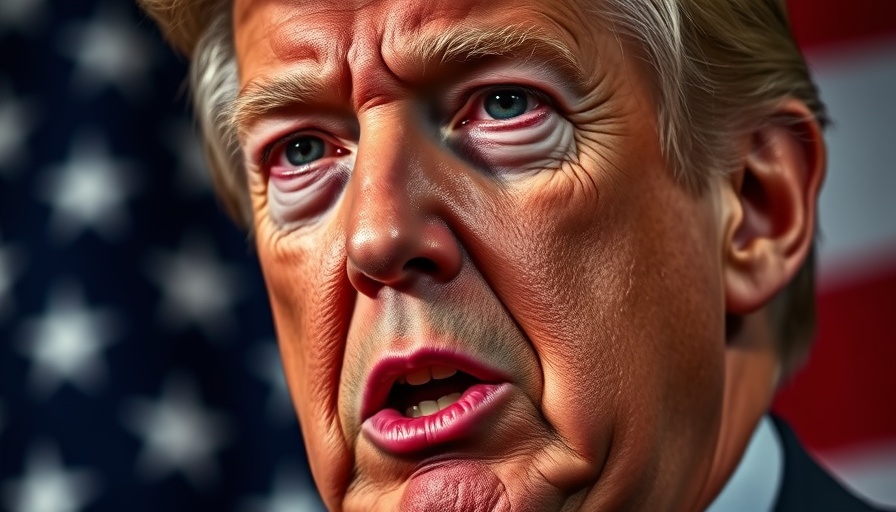
Understanding the Impact of Tariffs on Global Trade
The recent announcement of a staggering 104% tariff on Chinese goods by the United States is designed to send ripples across global trade dynamics. This bold move underscores not just a simple tariff escalation but an ongoing trade war narrative that highlights the complexities of international economics, especially as it pertains to Africa.
In 'US sets 104% tariffs on Chinese goods, Trump demands retaliatory levies be lifted,' the video highlights the drastic step of imposing tariffs, prompting an exploration into their implications for global trade, particularly in relation to Africa.
Tariffs like these are not mere bureaucratic figures; they have real implications for trade relationships and economies. For instance, China's potential response could provoke a tit-for-tat scenario, influencing prices of consumer goods worldwide, including those in African markets. Understandably, many countries, particularly in Africa, are caught in the crossfire, grappling with the indirect effects of these decisions.
Historic Context of Tariff Wars
Historically, tariff wars often lead to significant shifts in trade relations. The Great Depression saw policies such as the Smoot-Hawley Tariff drastically reduce international trade, deepening economic woes. Today, the current landscape is more interconnected, yet the immediate consequences of high tariffs may lead to inflationary pressures on imported goods, impacting local economies and consumers across the continent.
African Countries and Their Economic Landscape
African nations, many of which are reliant on imports and exports with both the U.S. and China, might experience stagnation if these tariffs persist. Countries that rely on affordable imports for essential goods could find themselves in peril as the costs rise. Hence, this dynamic calls for a re-evaluation of trade strategies to mitigate vulnerability in an increasingly hostile global environment.
Future Predictions for the Trade Landscape
Looking forward, analysts must consider how continued tariffs could reshape trade alliances, forcing African nations to seek new partnerships. Potential shifts towards more dynamic trade negotiations with alternative partners could emerge, and this could be a chance for African countries to strengthen their positions within global trade networks.
Key Takeaways and Calls for Action
The 104% tariffs are more than just numbers—they're indicative of a broader trade narrative that African nations must navigate wisely. Economic foresight and proactive strategies will be essential for markets on the continent. As we watch this geopolitical chess game unfold, it remains crucial for African leaders and policymakers to advocate for more balanced trade agreements that lessen global economic dependencies.
Now is the time to empower local economies through initiatives that promote self-sufficiency and reduce reliance on imported goods. A collective push for reform could mitigate the impacts of these tariffs and prepare African nations for shifts in the global economic order.
 Add Row
Add Row  Add
Add 




Write A Comment